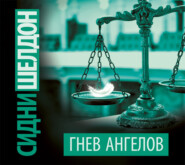По всем вопросам обращайтесь на: info@litportal.ru
(©) 2003-2025.
✖
The Other Side of Me
Настройки чтения
Размер шрифта
Высота строк
Поля
I had no idea what he was talking about. ‘Right.’
He led me over to the machine next to it. ‘What you see coming out here are round drive gears that are pressed into the output shaft of the transmission. The long one is the driven gear that’s inserted at a right angle to mesh with the drive gear.’
I looked at him and wondered. Chinese? Swahili?
We went to the next machine. ‘Here they’re making drive gears that press onto the front wheel hub. The driven gear is fixed to the brake backing plate to mesh with the drive gear. See?’
I nodded.
He walked me over to another machine. ‘This machine replaces worn gears. The transmission gearing has been standard for a long time. The advantage of the front-wheel systems is that axle ratios can be changed, or multiple-ratio rear axles can be used without affecting the speedometer accuracy. See?’
Swahili, I decided. ‘Of course.’
‘Now I’ll show you your department.’
He took me over to the short order department, where I was to take charge. The machines I had been introduced to were mammoth and were built to turn out huge orders for automobile manufacturers, half a million gears or more at a time. The short order department consisted of three much smaller machines.
Otto Karp explained, ‘If someone orders five or ten gears, we can’t afford to start up the big machines for that small an order. But these machines here are equipped to turn out as few as one or two gears. When a short order comes in, you will handle it and it can be filled right away.’
‘How do I do that?’
‘First, you will be handed a purchase order. The order can be for anywhere from one to a dozen drive or driven gears. Next, you give the order to the machinist. When the gears are ready, you’ll take them to the annealing department, where they’ll be hardened. Your next stop is inspection and finally the wrapping department.’
It sounded simple enough.
I learned that my predecessor had given the men who worked in the short order department no more than six orders a day. The rest he held back, and the men sat around half the day, doing nothing. I thought it was a waste. Within a month I had increased the output by fifty percent. At Christmastime I got my reward. Otto Karp handed me a check for fourteen dollars and said, ‘Here. You deserve it. You have a dollar raise.’’
Otto was traveling on the road and Natalie was working six days a week at a dress shop. Richard was going to school. My days at Stewart Warner, working in the drab surroundings of the factory, surrounded by surrealistic machinery, had become mind-numbing. My evenings were just as bad. I rode the El downtown to the Loop, walked into the hotel where I was working and spent the next few hours receiving and returning overcoats. My life had become an ugly gray rut again, and there was no way out.
Riding home on the El late one night, coming from work, an ad in the Chicago Tribune newspaper caught my eye:
Paul Ash is Sponsoring an Amateur Contest
Start your career in show business
Paul Ash, a nationally known band leader, was appearing at the Chicago Theatre. The ad was catnip to me. I had no idea what the amateur contest was about, but I knew I wanted to be in it.
On Saturday, before I went to work at the drugstore, I stopped at the Chicago Theatre and asked to see Paul Ash. His manager came out of an office. ‘What can I do for you?’
‘I’d like to enter the amateur contest,’ I said.
He consulted a paper. ‘We don’t have an announcer yet. Can you handle that?’
‘Oh. Yes, sir.’
‘Good. What’s your name?’
What was my name? Schechtel was not a show business name. People were always misspelling it and mispronouncing it. I needed a name they would remember. The possibilities raced through my mind. Gable, Cooper, Grant, Stewart, Powell…
The man was staring at me. ‘Don’t you know your name?’
‘Of course I do,’ I said quickly. ‘It’s Sidney Sh—Sheldon. Sidney Sheldon.’
He wrote it down. ‘All right. Be here next Saturday, Sheldon. Six o’clock. You’ll be broadcasting from the studio on a remote from WGN.’
Whatever that meant. ‘Right.’
I hurried home to break the news to my parents and my brother, Richard. They were excited. There was one more thing I had to tell them. ‘I’m using a different name.’
‘What do you mean?’
‘Well, Schechtel is not a show business name. From now on, I’m Sidney Sheldon.’
They looked at one another and then shrugged. ‘Okay.’
I had difficulty sleeping for the next few nights. I knew that this finally was the beginning. I was going to win this contest. Paul Ash would give me a contract to travel around the country with him. Sidney Sheldon would travel around the country with him.
When Saturday reluctantly dragged its way onto the calendar, I returned to the Chicago Theatre and was ushered into a small broadcast studio with several other young contestants. There was a comedian, a singer, a female pianist, and an accordion player.
The director said to me, ‘Sheldon—’
I felt a little thrill. It was the first time anyone had spoken my new name. ‘Yes, sir?’
‘When I point to you, you’ll step up to the microphone and start the show. You’ll say, ‘‘Good evening, ladies and gentlemen. Welcome to the Paul Ash Amateur Contest. This is your announcer, Sidney Sheldon. We’re going to give you an exciting show, so stay tuned!’’ Got that?’
‘Yes, sir.’
Fifteen minutes later, the director looked up at the studio clock on the wall and raised his arm. ‘Quiet, everyone.’ He began counting. He pointed to me and I was ready for show business. I had never been calmer in my life because I knew that this was the beginning of a wonderful career. And I was going to start under my new show business name.
With great composure, I stepped up to the microphone, took a deep breath and said, in my best announcer’s voice, ‘Good evening, ladies and gentlemen. Welcome to the Paul Ash Amateur Contest. This is your announcer—Sidney Schechtel.’
SIX (#ulink_23bbedfc-774c-537f-8235-4ca2d35e1700)
I recovered enough to introduce the other contestants. The show went well. The accordion player executed a foot-stomping tune, followed by the comedian, who did his bit like a seasoned pro. The singer sang beautifully. Nothing went wrong until the last contestant, the female pianist, was introduced. As soon as I announced her, she panicked, started to cry, and hurriedly fled from the room, leaving us with three minutes of empty air. I knew I had to fill it. I was the announcer.
I stepped back up to the microphone. ‘Ladies and gentlemen, we all start out as amateurs in life, but as we go on we grow and become professionals.’ I got so caught up in my own words that I kept talking until finally the director signaled for me to shut up.
We went off the air. I knew that I had saved the show and they would be grateful for that. Perhaps they would offer me a job as—
The director came up to me. ‘What the hell’s the matter with you, whatever your name is?’ he yelled. ‘You went over by fifteen seconds.’
My radio career was ended.
Paul Ash did not invite me to travel around the country with him, but there was one interesting fallout from the Paul Ash Contest. Otto, Natalie, Richard, Seymour, Howard, Eddie, and Steve all changed their last names to ‘Sheldon.’ The only remaining ‘Schechtel’ was Uncle Harry.
Early in May, my cousin Seymour stunned us all by announcing that he was getting married.
Seymour was only nineteen, but it seemed to me that he had been an adult for most of his life.

















